Filter by
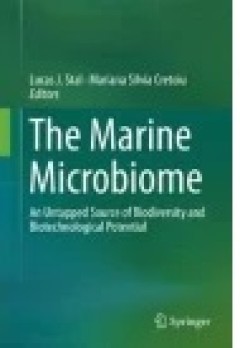
The Marine Microbiome
The marine microbiome is the total of microorganisms and viruses in the ocean and seas and in any connected environment, including the seafloor and marine animals and plants. The diversity of microbial life remains unquantified and largely unknown, and could represent a hidden treasure for human society. Accordingly, this book is also intended to connect academics and industry, providing essent…
- Edition
- -
- ISBN/ISSN
- 978-3-319-33000-6
- Collation
- XIV, 498
- Series Title
- -
- Call Number
- 660.63
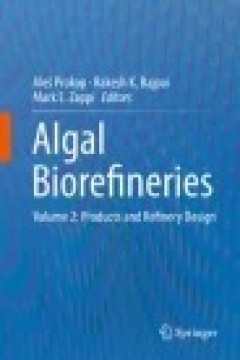
Algal Biorefineries: Volume 2: Products and Refinery Design
Algae offer potential to produce renewable chemicals and fuels using solar energy and carbon dioxide from atmosphere or in flue gases while simultaneously reducing the generation of greenhouse gases. Since these can be grown on marginal lands with micronutrients and macronutrients often present in waste streams, algae-based chemicals and fuels do not compete with foods. Still large-scale produc…
- Edition
- Ed. 1
- ISBN/ISSN
- 978-3-319-20200-6
- Collation
- VIII, 557
- Series Title
- -
- Call Number
- 576 ALG a
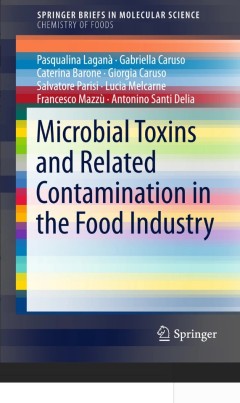
Microbial Toxins and Related Contamination in the Food Industry
This Brief concerns the chemical risk in food products from the viewpoint of microbiology. The “Hazard Analysis and Critical Control Point” (HACCP) approach, which is applied for this purpose, is dedicated to the study and the analysis of all possible dangers by food consumptions and the related countermeasures with the aim of protecting the health of consumers. This difficult objective is …
- Edition
- 1
- ISBN/ISSN
- 978-3-319-20558-8
- Collation
- VI, 101
- Series Title
- SpringerBriefs in Molecular Science
- Call Number
- -
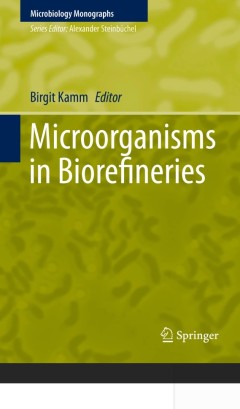
Microorganisms in Biorefineries
The book describes how plant biomass can be used as renewable feedstock for producing and further processing various products. Particular attention is given to microbial processes both for the digestion of biomass and the synthesis of platform chemicals, biofuels and secondary products. Topics covered include: new metabolic pathways of microbes living on green plants and in silage; using lig…
- Edition
- 1
- ISBN/ISSN
- 978-3-662-45208-0
- Collation
- X, 369
- Series Title
- Microbiology Monographs
- Call Number
- -
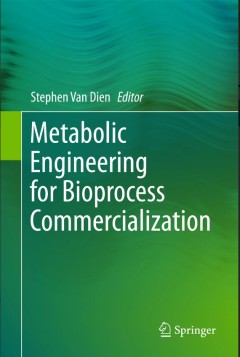
Metabolic Engineering for Bioprocess Commercialization
This volume reviews the current metabolic engineering tools and technologies from a practical point of view, and guides researchers as they overcome challenges at various stages of organism and bioprocess development. Microbes have been engineered to produce a variety of industrial products such as fuels, basic chemicals, fine chemicals, nutritional supplements, and pharmaceutical intermediates…
- Edition
- 1
- ISBN/ISSN
- 978-3-319-41964-0
- Collation
- V, 122
- Series Title
- -
- Call Number
- -
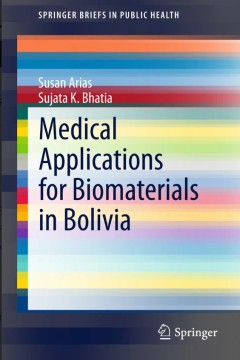
Medical Applications for Biomaterials in Bolivia
This book investigates the potential medical benefits natural biomaterials can offer in developing countries by analyzing the case of Bolivia. The book explores the medical and health related applications of Bolivian commodities: quinoa, barley, sugarcane, corn, sorghum and sunflower seeds. This book helps readers better understand some of the key health concerns facing countries like Bolivia a…
- Edition
- 1
- ISBN/ISSN
- 978-3-319-16774-9
- Collation
- X, 62
- Series Title
- SpringerBriefs in Public Health
- Call Number
- -
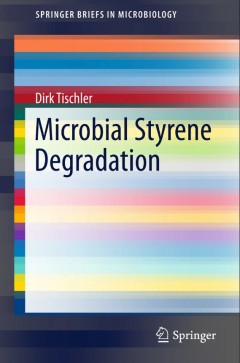
Microbial Styrene Degradation
This book describes the complex processes involved in styrene degradation by microbes, including highly adaptive microorganisms, the various enzymes involved in styrene biodegradation, new styrene-catabolic routes, novel regulatory mechanisms, and the genes coding for styrene metabolizing enzymes. Numerous biotechnological applications are discussed, such as the development of sustainable eco-f…
- Edition
- 1
- ISBN/ISSN
- 978-3-319-24860-8
- Collation
- XIV, 108
- Series Title
- SpringerBriefs in Microbiology
- Call Number
- -
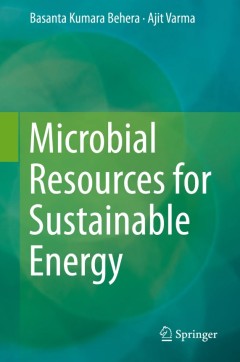
Microbial Resources for Sustainable Energy
This book sheds new light on how microbes can be used as effective and sustainable resources to produce green energy in the form of biogas, algal diesel, ethanol, hydrogen and direct electricity. It discusses topics such as microbial energy conversion technologies, including ethanol production by microbial catalytic reaction, biomethanization, biodiesel from microalgae, microbial fuel cells, an…
- Edition
- 1
- ISBN/ISSN
- 978-3-319-33776-0
- Collation
- XIX, 280
- Series Title
- -
- Call Number
- -
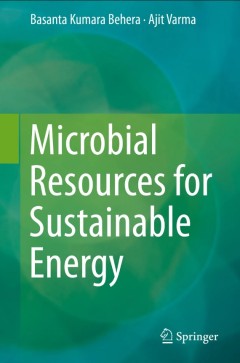
Microbial Resources for Sustainable Energy
This book sheds new light on how microbes can be used as effective and sustainable resources to produce green energy in the form of biogas, algal diesel, ethanol, hydrogen and direct electricity. It discusses topics such as microbial energy conversion technologies, including ethanol production by microbial catalytic reaction, biomethanization, biodiesel from microalgae, microbial fuel cells, an…
- Edition
- 1
- ISBN/ISSN
- 978-3-319-33776-0
- Collation
- XIX, 280
- Series Title
- -
- Call Number
- -

Volcanic Lakes
This book aims to give an overview on the present state of volcanic lake research, covering topics such as volcano monitoring, the chemistry, dynamics and degassing of acidic crater lakes, mass-energy-chemical-isotopic balance approaches, limnology and degassing of Nyos-type lakes, the impact on the human and natural environment, the eruption products and impact of crater lake breaching eruptio…
- Edition
- -
- ISBN/ISSN
- 978-3-642-36833-2
- Collation
- IX, 533
- Series Title
- -
- Call Number
- -
 Computer Science, Information & General Works
Computer Science, Information & General Works  Philosophy & Psychology
Philosophy & Psychology  Religion
Religion  Social Sciences
Social Sciences  Language
Language  Pure Science
Pure Science  Applied Sciences
Applied Sciences  Art & Recreation
Art & Recreation  Literature
Literature  History & Geography
History & Geography